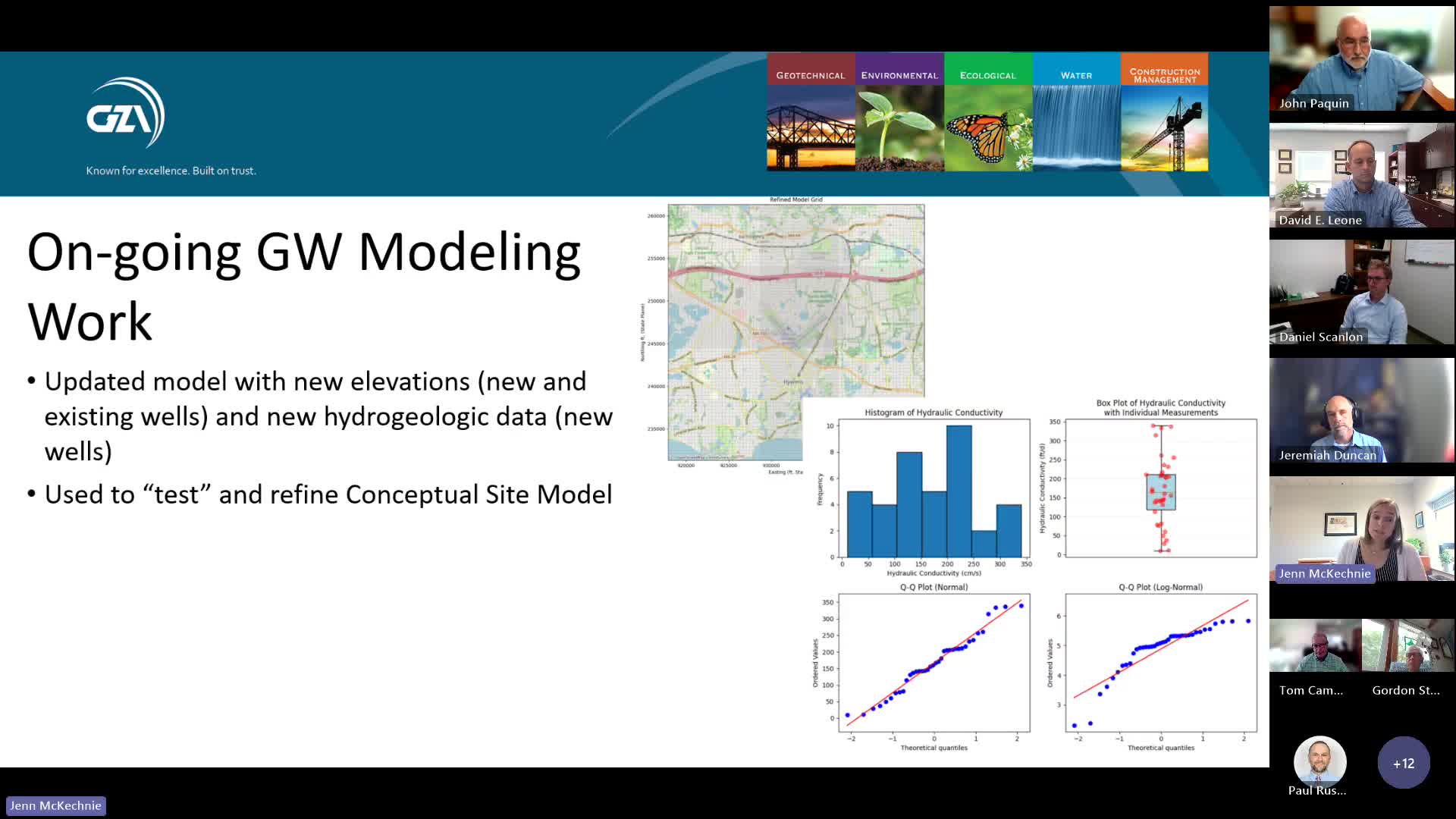City Team Integrates Groundwater Data for PFAS Forensics Analysis
August 01, 2025 | Barnstable County, Massachusetts
This article was created by AI summarizing key points discussed. AI makes mistakes, so for full details and context, please refer to the video of the full meeting. Please report any errors so we can fix them. Report an error »

Under the bright lights of Barnstable County's meeting room, officials gathered to discuss the ongoing efforts to tackle the complex issue of PFAS contamination. The atmosphere was charged with a sense of urgency as experts shared updates on the latest remediation strategies and scientific analyses aimed at understanding and mitigating the impact of these harmful substances.
At the forefront of the discussion was the refinement of a crucial model designed to assess PFAS levels in the groundwater. A team member detailed how they are incorporating site-specific data, including groundwater elevations from quarterly gauging runs and hydraulic conductivity testing conducted across various wells. This meticulous approach aims to enhance the accuracy of the model, which had previously overlooked the confining clay layer, a significant factor in understanding the contamination's spread.
As the meeting progressed, Jeremiah, a senior chemist leading the forensic analysis, took the floor. He emphasized the importance of developing new lines of evidence to complement the existing models. By employing numerical and statistical data analyses, along with innovative data visualization techniques, the team hopes to unravel the complexities surrounding PFAS sources. Jeremiah noted that there may be additional unidentified sources contributing to the contamination, underscoring the multifaceted nature of the problem.
In a bid to ensure clarity for all attendees, he offered a brief introduction to the chemistry of PFAS, recognizing that not everyone may be familiar with the technical details. This inclusive approach highlighted the commitment of Barnstable County officials to engage the community in understanding the challenges they face.
As the meeting drew to a close, the discussions reflected a collaborative effort to address a pressing environmental issue. The ongoing research and data collection signify a proactive stance in safeguarding public health and the environment, leaving attendees with a sense of hope and determination as they navigate the complexities of PFAS remediation.
At the forefront of the discussion was the refinement of a crucial model designed to assess PFAS levels in the groundwater. A team member detailed how they are incorporating site-specific data, including groundwater elevations from quarterly gauging runs and hydraulic conductivity testing conducted across various wells. This meticulous approach aims to enhance the accuracy of the model, which had previously overlooked the confining clay layer, a significant factor in understanding the contamination's spread.
As the meeting progressed, Jeremiah, a senior chemist leading the forensic analysis, took the floor. He emphasized the importance of developing new lines of evidence to complement the existing models. By employing numerical and statistical data analyses, along with innovative data visualization techniques, the team hopes to unravel the complexities surrounding PFAS sources. Jeremiah noted that there may be additional unidentified sources contributing to the contamination, underscoring the multifaceted nature of the problem.
In a bid to ensure clarity for all attendees, he offered a brief introduction to the chemistry of PFAS, recognizing that not everyone may be familiar with the technical details. This inclusive approach highlighted the commitment of Barnstable County officials to engage the community in understanding the challenges they face.
As the meeting drew to a close, the discussions reflected a collaborative effort to address a pressing environmental issue. The ongoing research and data collection signify a proactive stance in safeguarding public health and the environment, leaving attendees with a sense of hope and determination as they navigate the complexities of PFAS remediation.
View full meeting
This article is based on a recent meeting—watch the full video and explore the complete transcript for deeper insights into the discussion.
View full meeting
